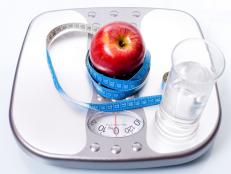Eggs: Myths vs. Facts

There are so many misconceptions swirling around eggs. I hear egg chatter in crowded elevators or at dinner parties—folks so proud about tossing that golden yolk. The next time you find yourself in the midst of an egg conversation, pipe in with these egg-cellent facts.
Myth: Always toss the yolks (it's egg white omelets or nothing!).
Fact: To get the scoop on this longtime myth, I spoke with dietitian Elizabeth Ward, MS, RD, author of MyPlate for Moms, How to Feed Yourself & Your Family Better and consultant for Eggland’s Best. Ward says, "It is the fat and cholesterol that scares people most about egg yolks, but I think most folks would be surprised to learn that most of the fat in eggs is unsaturated, or the heart-healthy kind. In addition, eggs are surprisingly low in saturated fat. As you know, saturated fat raises blood cholesterol levels with more force than does cholesterol."
In addition, "egg yolks have nearly half the protein of an entire egg, plus all the vitamins and minerals and omega 3s, " Ward says. "Eggs pack in good nutrition for about 70 calories each.”
Myth: Eggs should be eaten rarely--or at most, a few times a week.
Fact: Many folks are stuck on the old-school guidelines that said to eat a maximum of three eggs per week. The latest scientific research finds that one egg per day should be fine. According to The American Heart Association, a whole egg (white and yolk both) per day can be part of a healthy diet, but it's a good idea to swap it for other high cholesterol foods like dairy, meat and poultry.
Myth: Brown and white shelled eggs are nutritionally different.
Fact: The only difference in the color of the shell comes from the hens that lay them. Hens with white earlobes lay white eggs while hens with red earlobes lay brown eggs.
Myth: Dates on the egg carton reflect food safety.
Fact: The expiration or sell-by dates on egg cartons are a guideline for food quality, i.e., when the eggs are at their best, not food safety.
Toby Amidor, MS, RD, CDN, is a registered dietitian and consultant who specializes in food safety and culinary nutrition. See Toby's full bio »


































